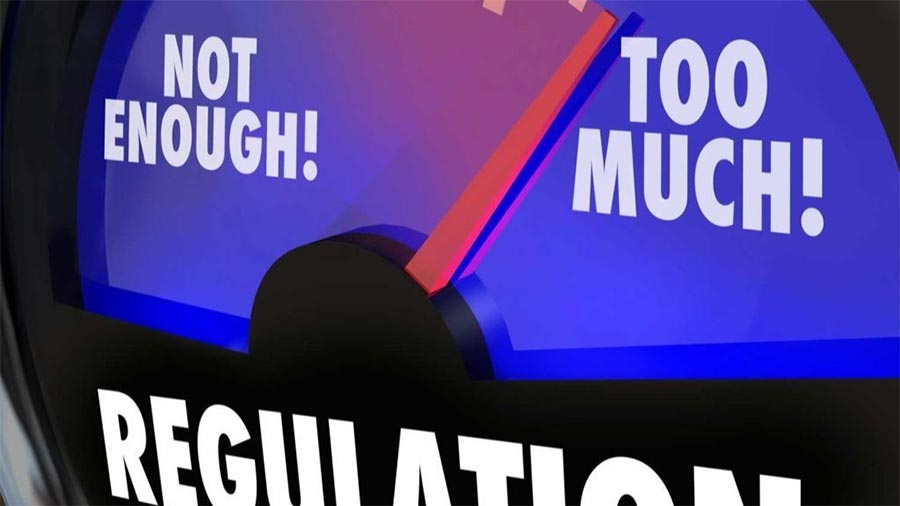
Editor’s Note: This article is an opinion piece and reflects the views of the author.
Regulation, in theory, exists to protect the vulnerable. In practice, however, when it comes to gambling, it has become little more than a mechanism for governments to extract as much money as possible under the guise of consumer protection.
Across Europe and beyond, excessive regulations have not led to safer gambling environments – one could actually argue they have simply made gambling worse for players. In markets like the UK, Belgium, France, and Australia, regulatory bodies have imposed stringent rules that claim to protect gamblers but instead push them toward riskier alternatives. Lowered RTPs, limited game options, reduced bonuses, and artificial restrictions, such as mandatory time delays between spins, do not deter problem gambling. Instead, they strip away player agency and create worse overall conditions for everyone.
What happens when the regulated market becomes unappealing? Players leave. And yet, regulatory bodies act surprised when players opt for grey and black-market casinos where RTPs are fairer, game selection is better, and artificial limitations don’t exist. When gamblers are faced with the choice between a suffocatingly regulated market with terrible odds or an offshore alternative that offers what they actually want, the decision is obvious.
Regulators, of course, know this. But rather than addressing the underlying problems they have created, they lash out.
Targeting Industry Voices Instead of Fixing the Problem
Instead of admitting their failures, governments have resorted to desperate tactics: attacking platforms that provide transparency, information, and open discussion about gambling. And when the regulatory bodies fail in their mission to get the black market casinos (which so far has failed), they find easier targets and go after websites like this one. The message is clear: if you provide legitimate options to players and help give them tools to make informed decisions for themselves, you are a threat.
Governments, unwilling to be seen as outright censors, use regulatory bodies to bully and pressure websites into self-censorship. The goal? To control the narrative. The public must not be allowed to decide which casinos best suit their needs. That choice has already been made for them by bureaucrats whose primary concern isn’t player safety, but revenue.
In supposedly free and democratic nations, governments are attempting to limit access to information under the flimsy excuse of “protecting” players. But this is not about protection. It is about money and getting rid of competition.

The Hypocrisy of Modern Gambling Regulations
The greatest irony is that genuine player protection is desperately needed. Predatory operators exist. We’ve been victims ourselves. Even well-known casino brands like Unibet and LeoVegas have engaged in questionable practices, closing affiliate accounts and holding years of revenue hostage through absurd demands. Casinos mistreating partners and players alike is a real problem. But these are not the problems regulators focus on.
Instead, governments treat gambling as a convenient cash cow. While the public perception may be that gambling is a moral battleground, the reality is that authorities have no interest in banning it outright. Why would they? The revenue is too good. Rather than eliminating gambling, they choose to dominate and control it, ensuring they get the biggest possible cut while making it as difficult as possible for players to gamble on their own terms.
If these regulations were truly about problem gambling, they would address predatory business models. They would prevent large, regulated operators from exploiting both players and business partners. They would focus on education and harm reduction. But they don’t. Instead, they fixate on useless and performative measures. The end result? A gambling market where the RTP has tanked and the chance to win is now worse than in the pre-regulation era, along with limitations so aggressive that many players have no other option than to search for other alternatives.
Let Players Choose
Gambling has always been a convenient scapegoat for politicians. It’s stigmatized enough that few will defend it, yet profitable enough that no government wants to give it up. The result is an environment where regulation serves political and financial interests rather than the players it claims to protect.
Players should not be criminalized or shamed for wanting better options. Communities like ours should not be targeted simply for providing a free platform for players. And regulators should not be allowed to manipulate and control the industry under the false pretense of “helping” the public.
This is not about safety. It is about power. And if history has taught us anything, it’s that when the government overreaches, the people will find a way around it.
